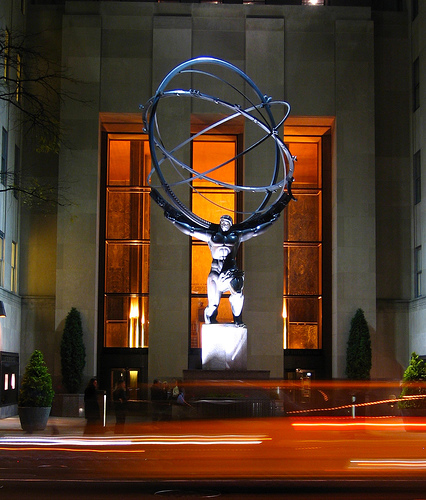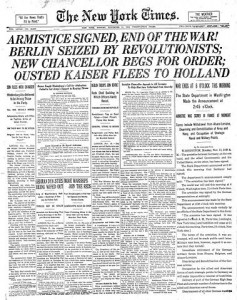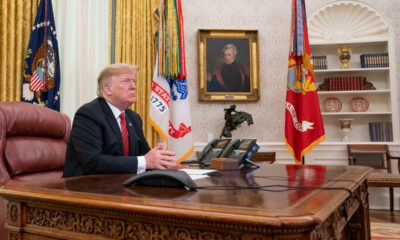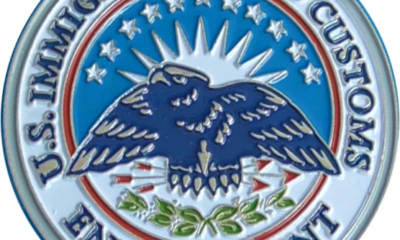Executive
Ayn Rand world: public broadcasting

In the Ayn Rand world, the government would not own, nor subsidize, media. A bipartisan commission recommended the same thing two years ago. But everyone missed that, even during the mid-term elections.
The Ayn Rand theory of government
To review, Ayn Rand recognized three, and only three, “proper functions of government.” They are:
- Police
- Armed services
- Law courts
The Constitution of the United States sets up Congress and the Supreme Court. It also grants to Congress the power to run armed services and to set up lower courts. The Constitution also grants to Congress the power to set up “post offices and post roads.” The Constitution does not grant to Congress the power to set up news media of any kind.
Ayn Rand said nothing specific about government ownership of media. She did say that the airwaves should not be a “common” or “public property.” (That last, of course, is an oxymoron.)
Any material element or resource which, in order to become of use or value to men, requires the application of human knowledge and effort, should be private property – by the right of those who apply the knowledge and effort.
She said that the government should have parceled out the airwaves at public auction, as the government auctioned off wilderness lands in the American West beginning in 1862 (the Homestead Act).
And she would never approve of government owning media organs. She would have two reasons:
- A newspaper, radio or television station, Web site, or the like, is a business, and does not fall into one of the “proper function” categories.
- A free society must have a source of news, about government or anything else, independent of government.
In fact, in another essay (“Collectivized ‘Rights’,” The Virtue of Selfishness), she decried censorship, in which the government controls the information that citizens and/or lawful residents get. Censorship was one of the Four Ways to Crash-Land that, if any government did them all, would make that government liable to invasion from without by any free nation that chose to avenge its enslaved subjects. (The other three are execution without a fair trial, detentions without formal charge, and restrictions on emigration.)
The first step toward censorship might be for the government to set up its own newspapers, radio and TV networks, etc. Next it would tell all other media organs what they may or may not say. Finally it would make all private media organs illegal. And arguably, the Obama administration has taken the first two steps. It can tell other radio and TV networks what to do, because it “owns the airwaves” and can refuse to renew broadcast licenses. Ayn Rand showed that no one could argue, with justice, that the government must own the airwaves. She would no doubt decry such ownership because it could enable censorship.
Origins of Government Media
Arguably, journalism began with a government organ: the Roman Senate Journal (Acta Diurna Senatus Romani). These “Daily Doings” were the minutes of open sessions of the Senate of Rome. First to publish these was Julius Caesar, in his first term as senior consul. Today’s Cable/Satellite Public Affairs Networks descend, at least in spirit, from the Roman Senate Journal. The reason: they carry the same kind of content. (Had they existed in ancient Rome, they would have set up cameras inside the Curia of the Senate, and detailed a permanent crew to stick as close to Julius Caesar as his lictors and clients normally did.)
Whenever government (usually royal) presses and independent presses coexisted, they were at odds. The most tyrannical government either did not allow private presses, or would tell them what they may or may not print. That is why James Madison, in framing a Bill of Rights for the Constitution, wrote in part:
Congress shall make no law…abridging the freedom…of the press.
But Congress has made such laws. It created the Federal Communications Commission, one of several quasi-legislative and quasi-judicial agencies. Under its first Chief Commissioner, Newton N. Minow, it set up the Fairness Doctrine. Under it, no one could say anything for public broadcast without giving “equal time” to others to respond. As a result, no radio or television station would show anything “controversial.” The “equal time” might be dead time, that no advertiser would sponsor. So for decades, the most common radio broadcast format was popular music.
Then President Ronald W. Reagan named several Commissioners who abolished the Fairness Doctrine. Now a station could offer talk, however controversial, without worrying about “equal time.” Rush Limbaugh was the first of many talk-show hosts who built their own networks to broadcast their voices in hundreds of markets.
A move to cut off government media
But the Corporation for Public Broadcasting still exists. It funds two national networks: National Public Radio, and the Public Broadcasting Service (formerly National Educational Television). Technically, the government does not own the CPB. But it subsidizes it, as much as 450 million dollars a year.
The Simpson-Bowles Deficit Reduction Commission recommended defunding the CPB in their report. Government critics still remembered this a year later. But in the excitement of the mid-term election campaign, everyone forgot about that recommendation. Part of the reason is that the putative President disregarded the Simpson-Bowles report. Now Senator Jim DeMint (R-SC) and Representative Doug Lamborn (R-CO) have proposed bills, each in his own chamber of Congress, to defund the CPB and its subsidiaries. The Media Research Center has taken up their cause.
Ayn Rand would object to that subsidy as surely as she would object to the government owning CPB. Sponsorship and ownership are only two different degrees of control. And that control pays dividends. The two organs that CPB funds typically produce programs that give “The Party Line” from the government.
As before, Ayn Rand would object for two reasons. Sponsoring or owning media does not protect anyone’s rights. And it can lead to government abrogating the citizens’ right to have someone other than the government inform them of what the government does.
This article is part of the Ayn Rand World series.
[amazon_carousel widget_type=”ASINList” width=”500″ height=”250″ title=”” market_place=”US” shuffle_products=”True” show_border=”False” asin=”B00375LOEG, 0451947673, 0800733940, 0062073303, 1595230734, 1936218003, 0981559662, 1935071874, 1932172378, 1936488299″ /]

Terry A. Hurlbut has been a student of politics, philosophy, and science for more than 35 years. He is a graduate of Yale College and has served as a physician-level laboratory administrator in a 250-bed community hospital. He also is a serious student of the Bible, is conversant in its two primary original languages, and has followed the creation-science movement closely since 1993.
-

 Accountability3 days ago
Accountability3 days agoWaste of the Day: Principal Bought Lobster with School Funds
-

 Constitution2 days ago
Constitution2 days agoTrump, Canada, and the Constitutional Problem Beneath the Bridge
-

 Executive1 day ago
Executive1 day agoHow Relaxed COVID-Era Rules Fueled Minnesota’s Biggest Scam
-

 Civilization5 hours ago
Civilization5 hours agoWhy Europe Shouldn’t Be Upset at Trump’s Venezuelan Actions
-

 Civilization1 day ago
Civilization1 day agoThe End of Purple States and Competitive Districts
-

 Christianity Today5 hours ago
Christianity Today5 hours agoSurprising Revival: Gen Z Men & Highly Educated Lead Return to Religion
-

 Civilization5 days ago
Civilization5 days agoThe devil is in the details
-

 Executive4 days ago
Executive4 days agoTwo New Books Bash Covid Failures












[…] institutions of any kind. This includes the Post Office, “pure” science programs, Public Broadcasting Service and National Public Radio. (C-SPAN might survive as an institution of […]